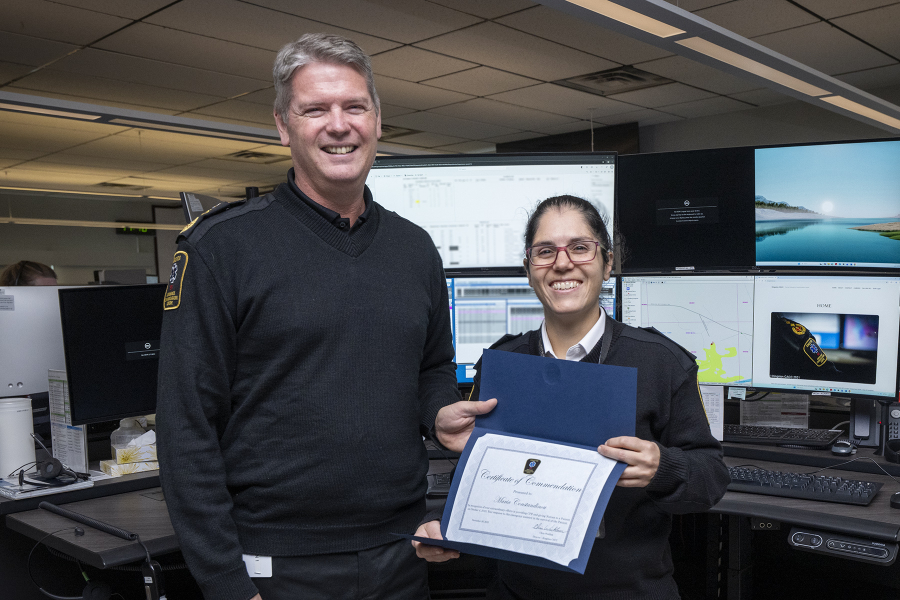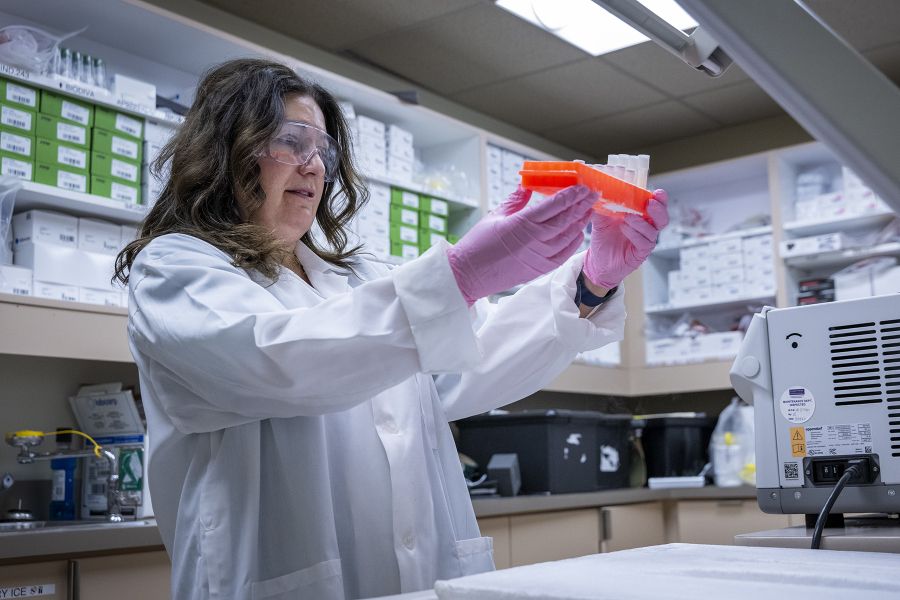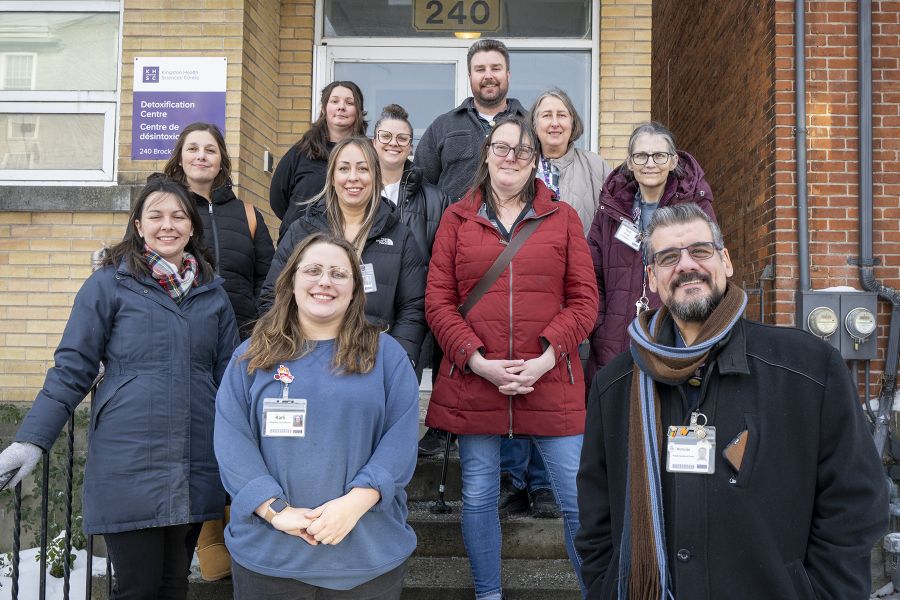Effective immediately masking is required for everyone when present on all inpatient units, in the Emergency Department (ED), the Urgent Care Centre (UCC), and the Children’s Outpatient Centre (COPC).
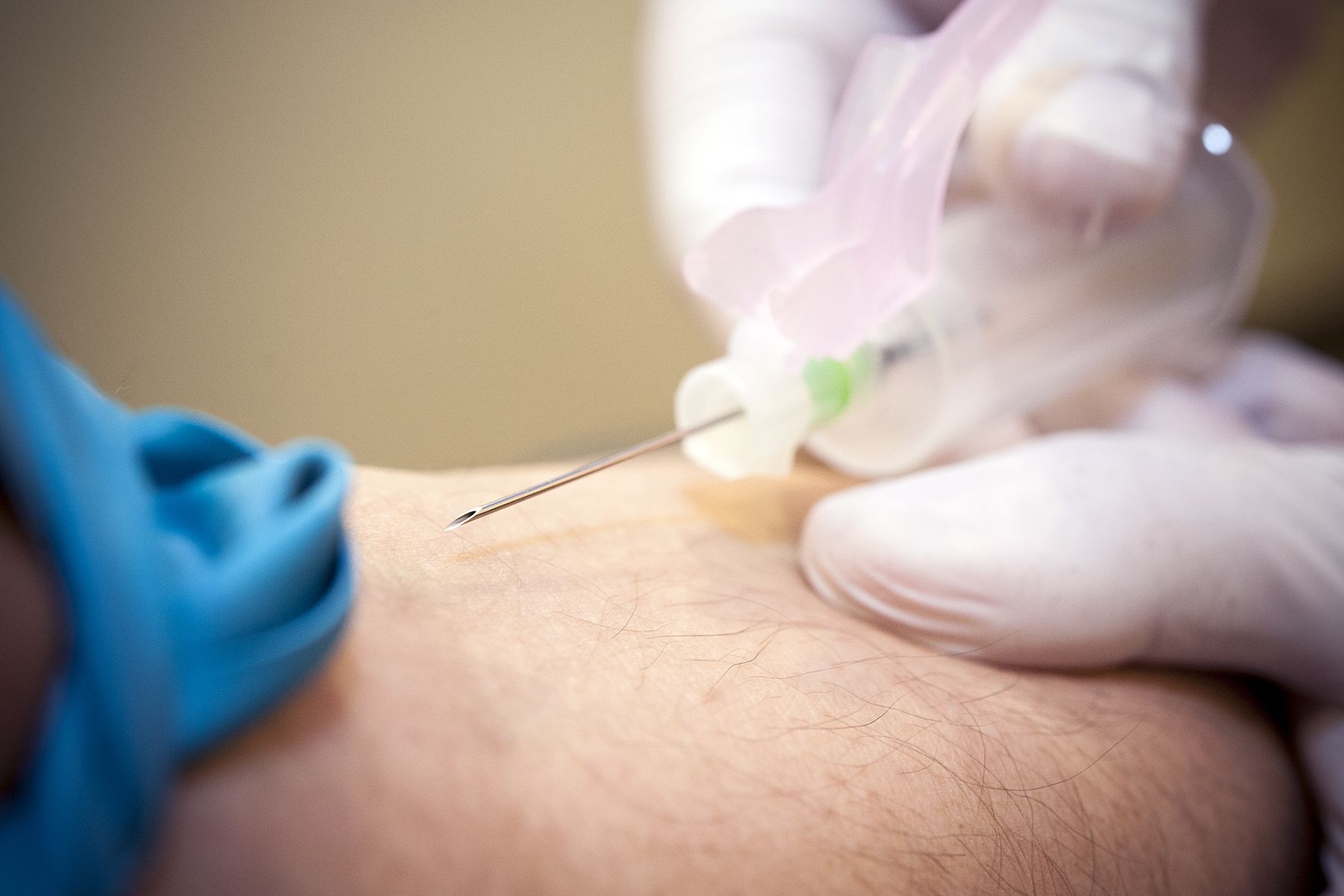
Collecting blood samples is a big job across Kingston General Hospital. Now a specialized team of phlebotomists is being assembled to help ensure it is always done in a safe, consistent and timely manner for our patients.
"At the moment there are more than 1,100 health-care workers at KGH collecting specimens for laboratory testing by way of venipuncture," says Julie Caffin, Program Operational Director for Cardiac and Emergency Programs. "The new phlebotomy team will help reduce this number significantly so we can more closely monitor, manage and constantly improve this important service."
The decision to go ahead with the new team was made after a successful pilot project was run in our cardiac unit, with ECG technicians performing phlebotomy. This small team was able to soon reduce the amount of blood collection errors, such as improper collection, specimen labelling mix-ups and incomplete requisitions.
Once the hospital-wide phlebotomy team is up and running, it will be made up of 15 or 16 Full-Time Equivalent (FTE) positions. About seven of these will be new FTEs, while the rest will come from the pooling of existing positions.
The phlebotomists will be responsible for drawing blood but not doing IV starts. They will report directly to our Clinical Laboratory Service and will be available 24 hours a day, seven days a week. Work is now underway to figure out exactly how they should be scheduled so they are always available when units need them.
Currently, most blood draws at KGH are happening in the middle of the night, between 3 and 6 a.m. as that's when most caregivers have the time to do it. Not only is this an inconvenient time for our patients, it also seems to result in many of these samples being submitted as "stat" orders which puts pressure on our labs.
"One of the goals of the team will be to shift and condense the time period when most blood draws happen to improve the patient experience and to improve our efficiency," says Caffin.
The creation of a phlebotomy team also supports the work of our Interprofessional Collaborative Practice Model (ICPM) as it supports staff working to their full scope of practice with the right people doing the right jobs.
Gallery
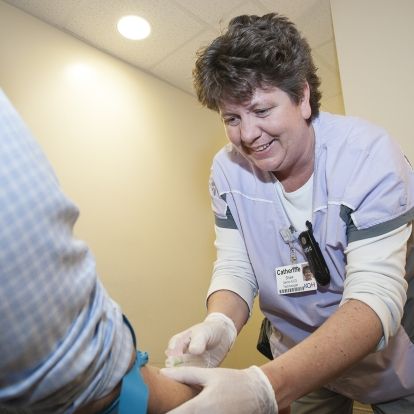
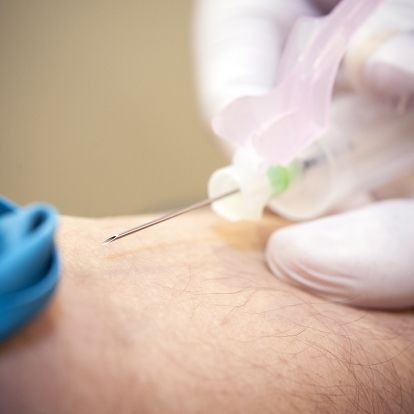
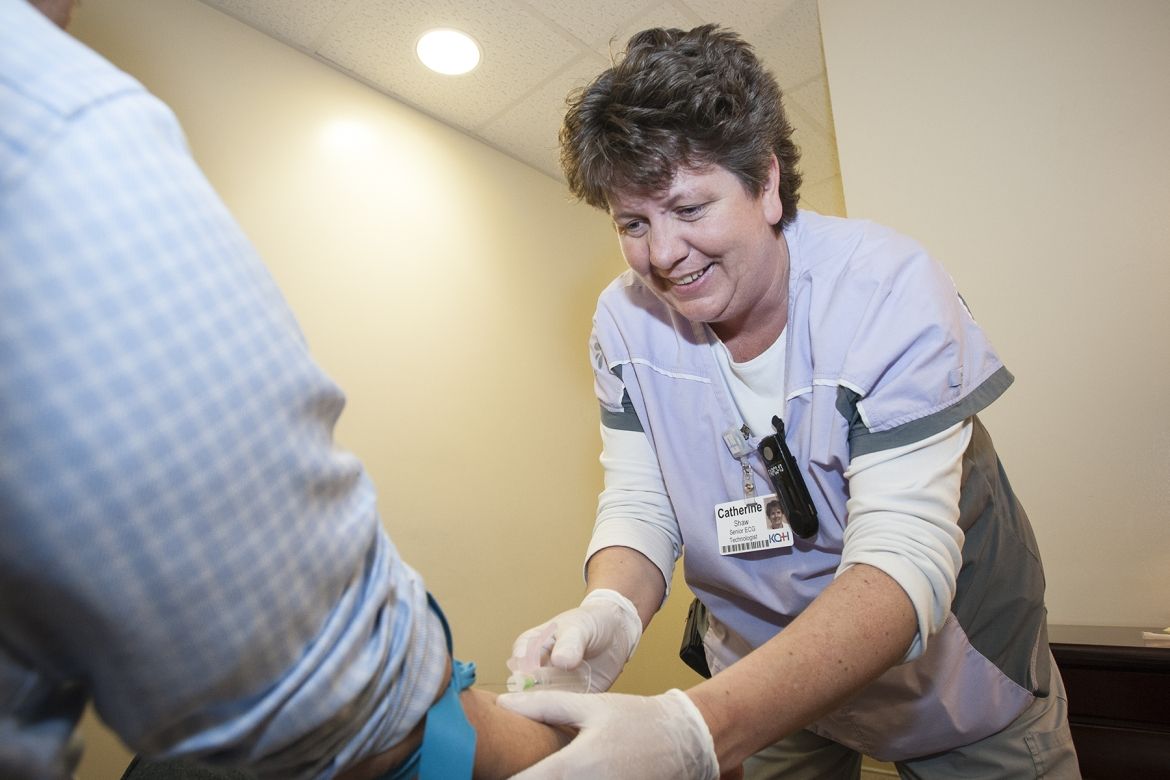
ECG Technician Cathy Shaw was part of a pilot project in the cardiac unit that led to the creation of our new phlebotomy team.
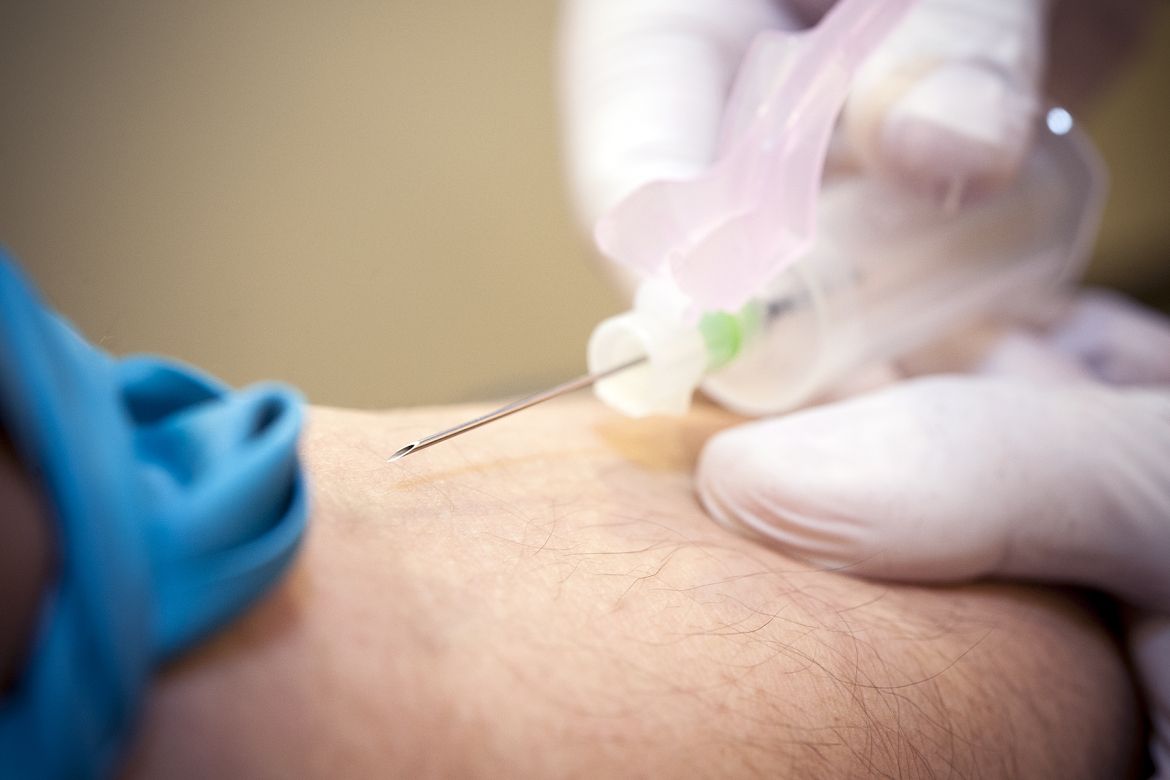
ECG Technician Cathy Shaw was part of a pilot project in the cardiac unit that led to the creation of our new phlebotomy team.

